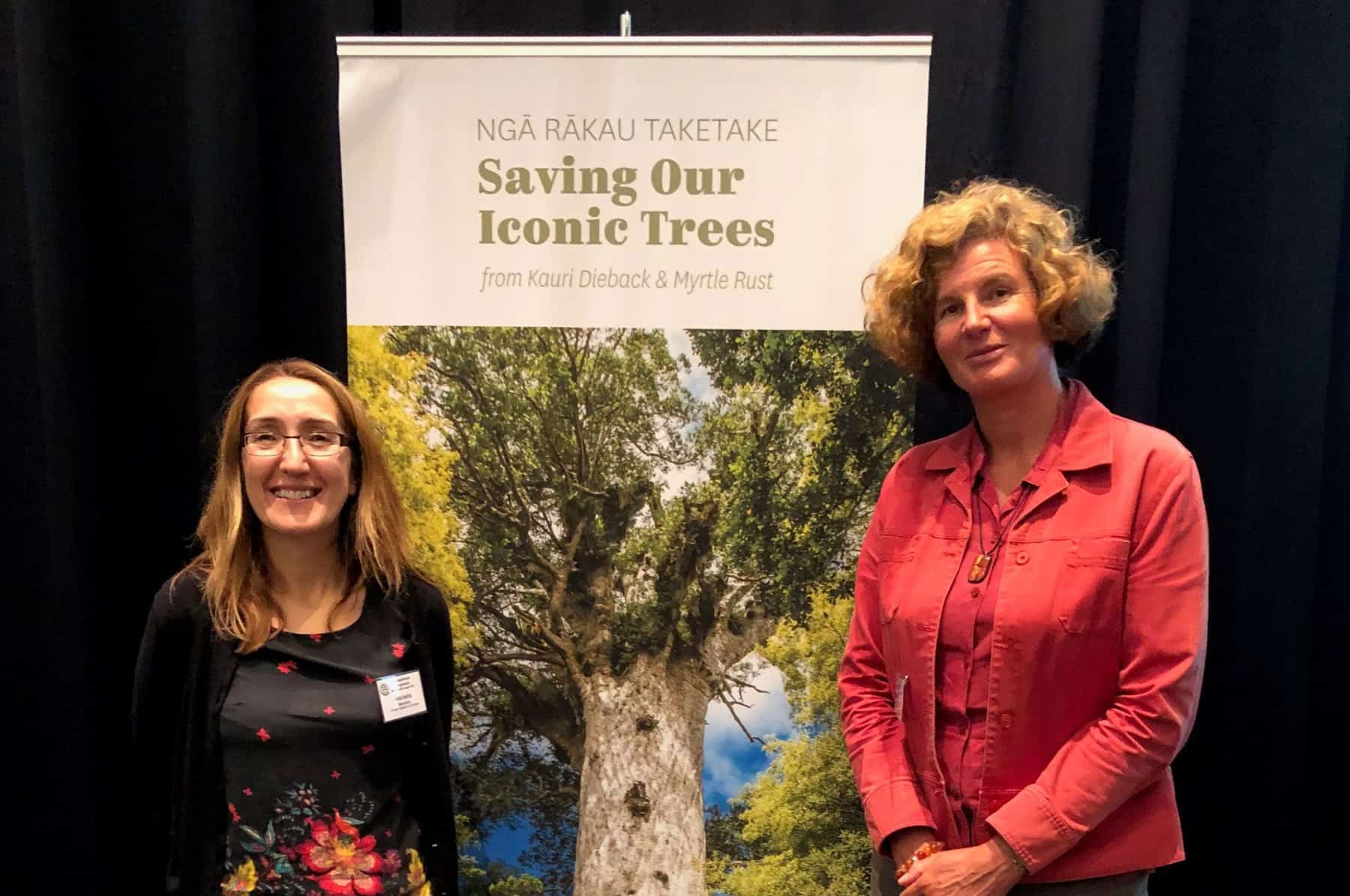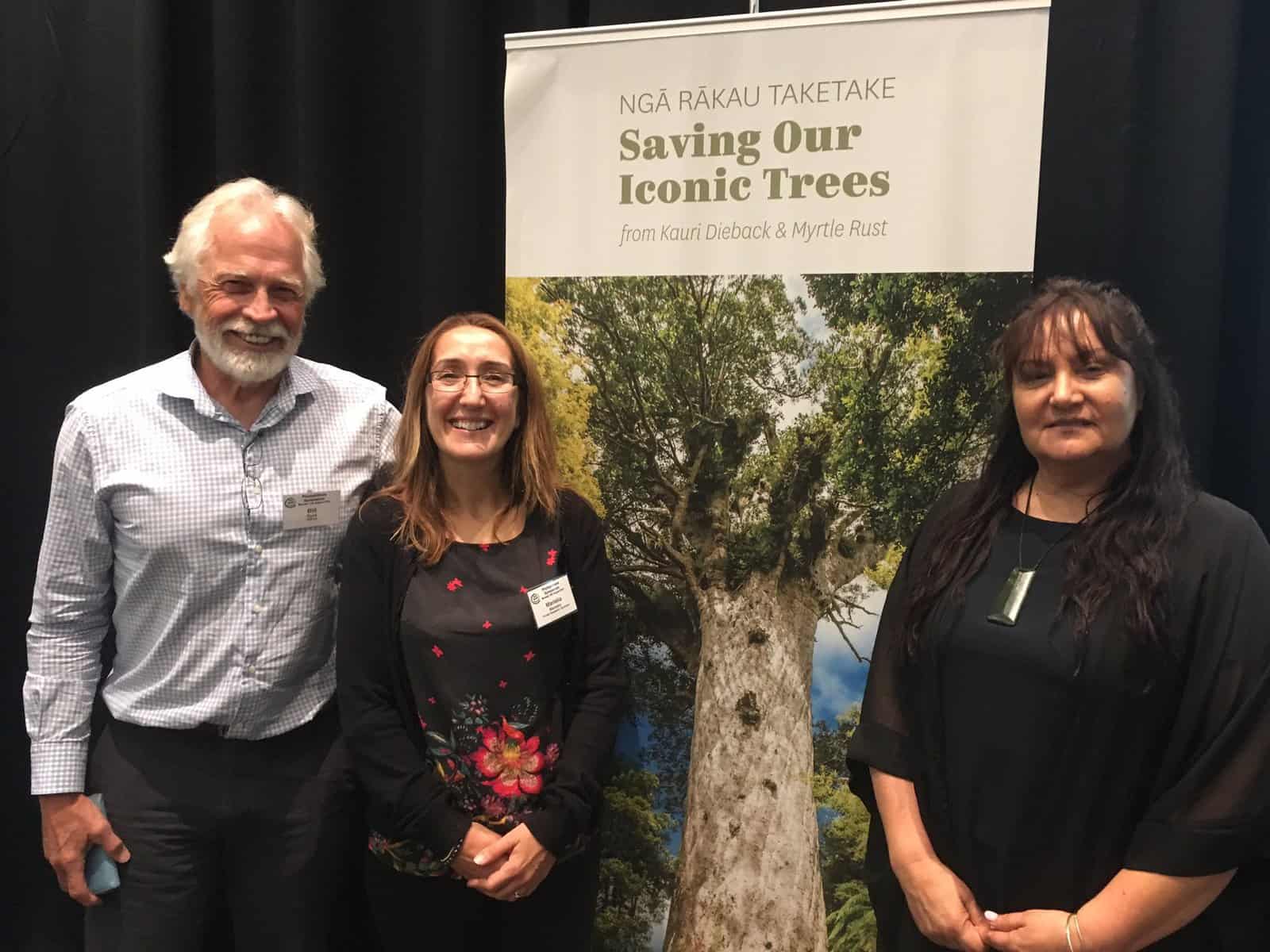
Kauri Rescue project lead Dr Ian Horner (Plant & Food Research) says fifteen years ago this would never have been possible.
“No one would have dreamt of holding a Phytophthora symposium as no one would have shown up!”
New Zealand is now home to a number of Phytophthora experts, trained or brought in to respond to the devastating effects of Phytophthora agathidicida, which causes kauri dieback disease.
Phytophthora species seem to be rapidly spreading around the world, with more being discovered every year.
Western Australians are well-versed at dealing with Phytophthora in their forests, and some have come to Aotearoa to assist in the fight against kauri dieback.
The New Zealand Plant Protection Society organised the one-day Phytophthora hui as a prelude to their annual conference.
BioHeritage was proud to co-sponsor two of the four international speakers: Dr Sarah Green and Dr Mariella Marzano from Forest Research in Scotland.
Sarah says that in the last 15 years Scotland has discovered five pathogenic Phytophthora species, which have had devastating effects on both exotic and native trees.
Larch, which used to be the number two species for plantation forestry, is pretty much gone now.
Sarah is leading a “Phyto-Threats Project” that is looking to raise standards in plant nurseries to best practice, to reduce pathogen risk and disease levels.
She says a large proportion of all plants sold in the UK are imported from Europe and there are therefore challenges in managing the system.

BioHeritage knowledge broker Bill Dyck says it’s clear New Zealand is facing serious Phytophthora threats.
“Plantation forestry and the horticulture sectors recognise that Phytophthora are also an issue for them, and that they need to prepare to respond to should new ones emerge.”
Bill says solutions to Phytophthora infection are hard to find because chemicals are often ineffective and resistance breeding strategies aren’t usually practical because they take too long.
However, we can greatly reduce the spread of Phytophthora by better understanding the pathogen, developing and implementing strategies to slow the spread.
Bill says “We can also enhance the resilience of trees but much more research is needed in this area to provide assurances that we can take steps to both manage Phytophthora and improve resilience.”